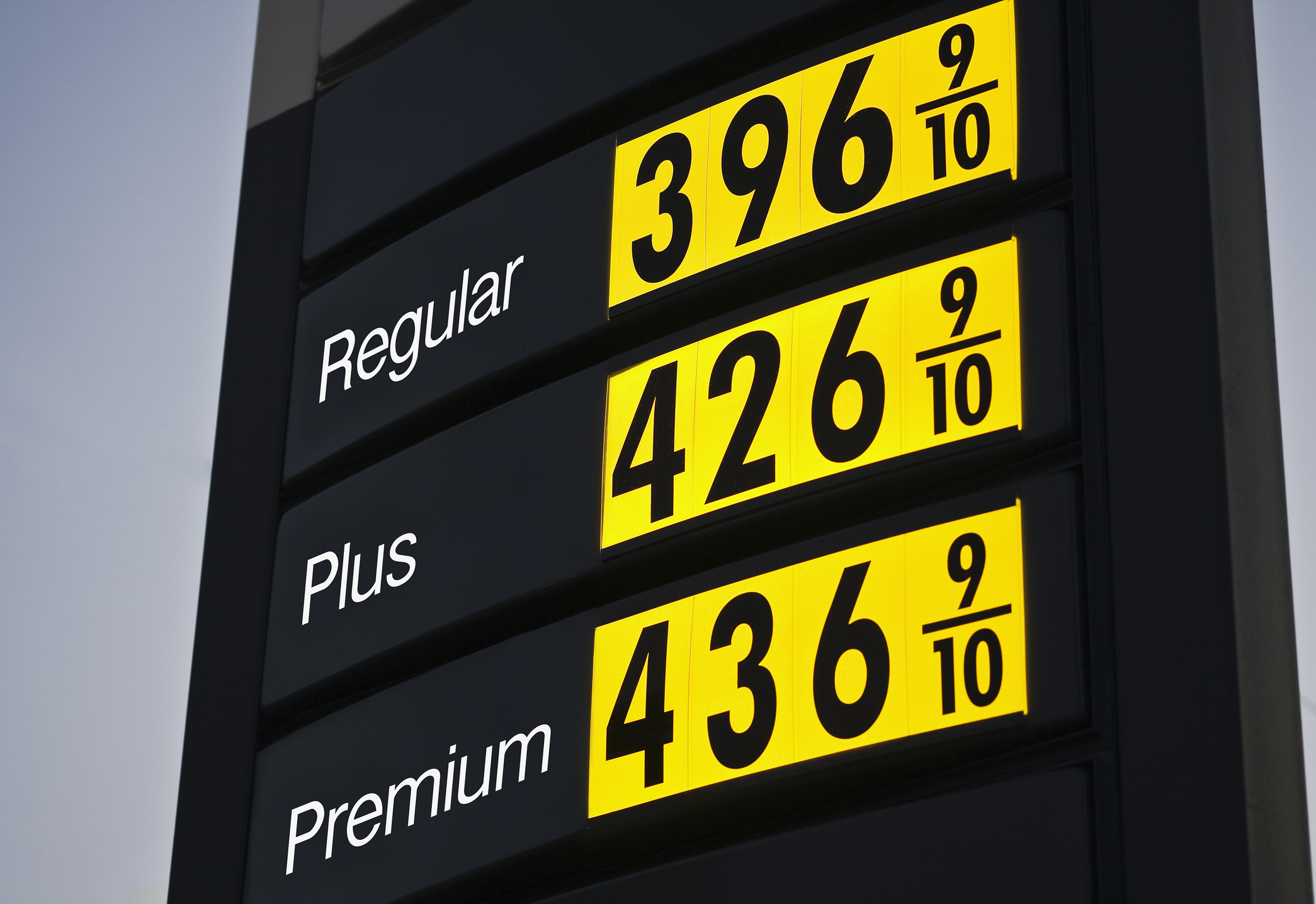Why Hybrids Make Sense
They retain more of their original value and often have lower maintenance costs than their nonhybrid counterparts.

Profit and prosper with the best of Kiplinger's advice on investing, taxes, retirement, personal finance and much more. Delivered daily. Enter your email in the box and click Sign Me Up.
You are now subscribed
Your newsletter sign-up was successful
Want to add more newsletters?

Delivered daily
Kiplinger Today
Profit and prosper with the best of Kiplinger's advice on investing, taxes, retirement, personal finance and much more delivered daily. Smart money moves start here.

Sent five days a week
Kiplinger A Step Ahead
Get practical help to make better financial decisions in your everyday life, from spending to savings on top deals.

Delivered daily
Kiplinger Closing Bell
Get today's biggest financial and investing headlines delivered to your inbox every day the U.S. stock market is open.

Sent twice a week
Kiplinger Adviser Intel
Financial pros across the country share best practices and fresh tactics to preserve and grow your wealth.

Delivered weekly
Kiplinger Tax Tips
Trim your federal and state tax bills with practical tax-planning and tax-cutting strategies.

Sent twice a week
Kiplinger Retirement Tips
Your twice-a-week guide to planning and enjoying a financially secure and richly rewarding retirement

Sent bimonthly.
Kiplinger Adviser Angle
Insights for advisers, wealth managers and other financial professionals.

Sent twice a week
Kiplinger Investing Weekly
Your twice-a-week roundup of promising stocks, funds, companies and industries you should consider, ones you should avoid, and why.

Sent weekly for six weeks
Kiplinger Invest for Retirement
Your step-by-step six-part series on how to invest for retirement, from devising a successful strategy to exactly which investments to choose.
Nearly one-fourth of consumers surveyed recently by J.D. Power and Associates say their next car will be a hybrid, and sales have risen steadily over the past four years. But when you compare the cost of a hybrid with that of a conventional model, the price premium may give you pause. The average price of a hybrid is about $3,700 higher than that of its comparable gasoline-engine model. Back-of-the-envelope calculations of savings on gas show that it would take years to recoup that money; that’s one reason hybrids accounted for only 3% of total sales last year. It doesn’t help that Uncle Sam ended tax credits for hybrid purchases in 2010. Plus, the Energy Information Administration has forecast lower gas prices for the next year or two.
See Also: 15 Most Fuel-Efficient Cars, 2013
The whole picture. But there’s more to the calculation than just fuel savings and tax credits. Hybrids retain more of their original value and often have lower maintenance costs than their nonhybrid counterparts. Too many buyers “overweight initial cost and underweight the total cost of ownership,” says John Voelcker, editor of Green Car Reports. When you take these costs into account, the financial equation shifts.
Kelley Blue Book’s ownership cost calculator lets you compare the five-year costs of models on the market. For example, the Toyota Camry Hybrid LE (sticker price $26,935) costs $3,460 more than the Camry LE ($23,475). But the hybrid’s five-year ownership cost is $150 less than its nonhybrid sibling’s.
From just $107.88 $24.99 for Kiplinger Personal Finance
Become a smarter, better informed investor. Subscribe from just $107.88 $24.99, plus get up to 4 Special Issues

Sign up for Kiplinger’s Free Newsletters
Profit and prosper with the best of expert advice on investing, taxes, retirement, personal finance and more - straight to your e-mail.
Profit and prosper with the best of expert advice - straight to your e-mail.
Ford’s Fusion SE Hybrid ($27,995) costs $1,700 less to own over five years than the Fusion SE gas-engine model ($24,515). Other hybrid models that cost less or virtually break even over five years compared with their conventional doppelgangers include the Acura ILX ($29,795), Ford C-Max ($25,995, compared with the Ford Focus hatchback), Honda Civic Hybrid ($25,150), Lexus ES 300h ($39,745) and Toyota Prius Two ($24,995, compared with the Toyota Matrix). Lincoln’s MKZ hybrid is the same price as the base model ($36,820) and costs nearly $7,000 less over five years. The greater the initial price premium, the less likely you’ll recoup it, and that’s especially true with luxury vehicles.
Many hybrid owners are just as concerned with the environmental benefits as with the impact on their wallets. A hybrid produces lower emissions than its gasoline-engine equivalent because the less gasoline a car burns, the less carbon dioxide it spews. Using less fossil fuel is also a plus.
Good news for buyers. Nearly every category of vehicle now has a hybrid option, and some hybrid models are making a comeback. Honda’s Accord Hybrid, last sold as a 2007 model, will return early next year. Nissan is expected to bring back the Altima Hybrid after a two-year hiatus. And Ford will likely bring back the Escape Hybrid.
Battery life has long been a concern of potential buyers, but experts say it isn’t an issue. The only vehicles needing replacements in any quantity are the first generation of Toyota Priuses, which are now 12 to 13 years old. The cost of a replacement pack for the Prius is down from $9,800 to $2,600, and prices are expected to decrease further as automakers benefit from economies of scale with more hybrid sales. Most brands’ hybrid component warranties are for eight years, and Hyundai offers a lifetime warranty.
If you own a hybrid for fewer than five years or don’t drive much, you’ll get less value from a hybrid model. Thanks to stricter government fuel-economy standards, you have more choices among gas-sipping conventional vehicles. Among midsize sedans, both the redesigned Nissan Altima ($22,550) and the 2014 Mazda6 ($23,290) post 38 mpg on the highway.
Ask Jessica a question at janderson@kiplinger.com, or follow her on Facebook or Twitter.
Profit and prosper with the best of Kiplinger's advice on investing, taxes, retirement, personal finance and much more. Delivered daily. Enter your email in the box and click Sign Me Up.

-
 Dow Adds 1,206 Points to Top 50,000: Stock Market Today
Dow Adds 1,206 Points to Top 50,000: Stock Market TodayThe S&P 500 and Nasdaq also had strong finishes to a volatile week, with beaten-down tech stocks outperforming.
-
 Ask the Tax Editor: Federal Income Tax Deductions
Ask the Tax Editor: Federal Income Tax DeductionsAsk the Editor In this week's Ask the Editor Q&A, Joy Taylor answers questions on federal income tax deductions
-
 States With No-Fault Car Insurance Laws (and How No-Fault Car Insurance Works)
States With No-Fault Car Insurance Laws (and How No-Fault Car Insurance Works)A breakdown of the confusing rules around no-fault car insurance in every state where it exists.
-
 10 Things You Should Know About Buying a Car Today, Even if You've Bought Before
10 Things You Should Know About Buying a Car Today, Even if You've Bought BeforeIf buying a car is on your to-do list, and it's been a while since you went shopping for a new one, this guide will help avoid any nasty shocks in the showroom.
-
 Get the Best Car Deal in Retirement: Here's the Trick
Get the Best Car Deal in Retirement: Here's the TrickPlanning on shopping for a new car this Labor Day weekend? Here’s how to haggle for a better price, even though you're retired.
-
 7 Gas-Saving Tips That Actually Work
7 Gas-Saving Tips That Actually WorkThese are gas-saving tips that will actually work for you and your car this year.
-
 Want to Lease an EV? The Tax Credit 'Loophole' for That Is Going Away Soon
Want to Lease an EV? The Tax Credit 'Loophole' for That Is Going Away SoonTax Credits If you are deciding whether to lease or buy an electric vehicle, here is what you need to know about how the EV lease tax credit works now that it will be eliminated under Trump's new tax law.
-
 Car Buying in a Topsy-Turvy Market
Car Buying in a Topsy-Turvy MarketYou need a new car? Good luck with that! What should you do? We've got some answers.
-
 Watch Out for Flood-Damaged Cars from Hurricane Ian
Watch Out for Flood-Damaged Cars from Hurricane IanBuying & Leasing a Car In the wake of Hurricane Ian, more flood-damaged cars may hit the market. Car prices may rise further because of increased demand as well.
-
 Car Buyers: The 3-Day Grace Period Is Just a Myth!
Car Buyers: The 3-Day Grace Period Is Just a Myth!Buying & Leasing a Car Many car buyers think they have three days after making a purchase to return a car. Here’s where they’re going wrong, and what they should do instead to get a decent used car.
-
 PODCAST: Car-Buying in an Inflated Market with Jenni Newman
PODCAST: Car-Buying in an Inflated Market with Jenni NewmanBuying & Leasing a Car With cars both scarce and expensive these days, what to do if you want – or need – a new ride? Car-buying strategist Jenni Newman of Cars.com shares some tips. Also, more on the magical 9% savings bond.